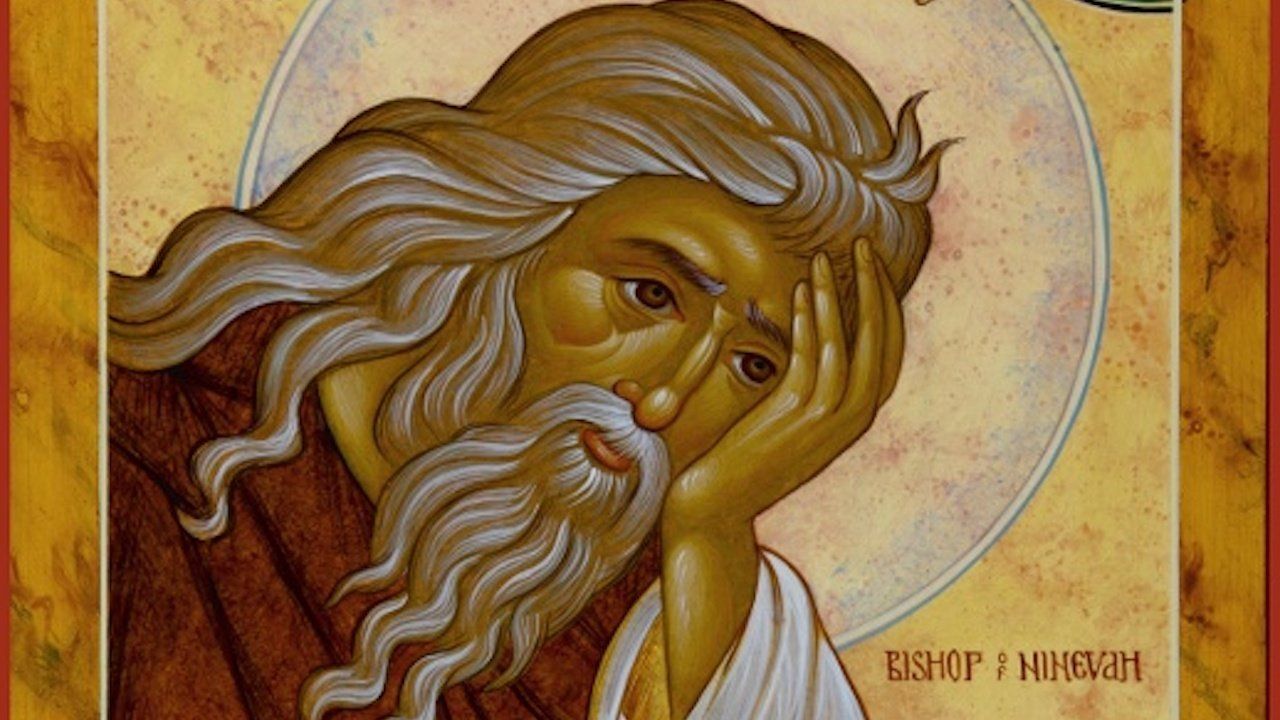Dead to the World
by St Isaac the Syrian
Feast of St Cyriacus the Hermit of Palestine
Anno Domini 2020, September 29

THINK OF virtue as being the body, but of contemplation as being the soul; and of the two as being one complete spiritual person, composed of sensible and intelligible parts. Now, just as it is impossible for the soul to come into existence and birth without the complete formation of the body, so it is impossible that contemplation which is the second soul, the spirit of revelations, be formed in the womb of the intellect, capable of receiving an abundance of spiritual seed, without the bodily practice of virtue, where the knowledge that can receive revelation dwells.
Contemplation (theoria) is the perception of the divine mysteries hidden in the things which are spoken in the Scriptures.
When you hear about renunciation of the world or about abandonment of the world or about being pure of the world, first of all you need to learn and know, not approximately but with powers of discernment: what the term “world” means and of how many distinctions this term consists. Only then will you be able to know your soul, how much you are distant from or connected to the world. If one first does not know what the world is, one will not understand with how many parts of the body one is distant or ensnared within it.
Many of those who withhold themselves from the world in two or three respects think that their souls are particularly separated from it by their way of life. This is because they have not understood or perceived wisely that in one or two parts they are dead to the world, while in all other parts they are alive within the body of the world. Therefore they are not even able to perceive their passions; and, because they do not perceive them, they are not even concerned about their healings.
According to contemplative inquiry, “world” is said to be a general word which refers to distinct passions. When we want to speak of passions in general we call them “world.” But when we speak of particular passions, we use their distinctive names. The passions are part of the ongoing course of the world; and where the passions have ceased there the world has ceased proceeding on its course. The passions are: love of riches, amassing of possessions; the fattening of the body, from which proceeds carnal desire; love of honors, which is the source of envy; administration of government; pride and pomp of power; elegance; popularity, which is the cause of ill-will; fear for the body.
When these passions desist from their course, then correlatively the world ceases to exist. As in each of the saints who while living are dead, they are alive in the body but they do not live according to the flesh. See in which of these you are alive and then you will know to what degree you are alive to the world and how much you are dead to it. When you have learned what the world is, you will learn about these distinctions and also about our wallowing in it or being free of it.
In short, the world is the carnal way of life and the mind of the flesh. Further evidence for this is that negation of the world becomes apparent in these two changes: by a transformation in way of life and by a difference in mental impulses. You may take the measure of your way of life by observing your mental impulses and the things towards which your mind wanders with its impulses; namely, for which things nature longs willingly, both those impulses that are habitual and those that are set in motion by chance; whether the mind receives the perception of incorporeal impulses only, or moves wholly through matter; whether this materiality is passional or a question of the imprints of corporeal practice of virtue, in that the mind, not of its own will, is confused by those things with which it exercises virtue and from which it, not feebly, receives cause of fervor and concentration of thoughts, so that the mind for its own education is still able to labor bodily, with the right intention, although not passibly; and finally whether the mind is not distressed by the hidden attacks of the imprints of thoughts because of its excessive radiance in God which keeps cutting off vain memories. These brief indications of this chapter are sufficient for man’s illumination, instead of many writings, if he is quiet and discerning.
Fear for the body is strong in man so that many times he abstains from praiseworthy and honorable things because of it. But when fear for the soul beholds this, thus fear for the body is vanquished before it like wax by the force of the flame.
—St Isaac of Nineveh, On the Ascetical Life
Contribute to Cultural Renewal by Sharing on Your Preferred Platform
In an isolating secularized culture where the Church's voice is muffled through her many divisions, Christians need all the help they can get to strengthen their faith in God and love toward their neighbor. Eighth Day Institute offers hope to all Christians through our adherence to the Nicene faith, our ecumenical dialogues of love and truth, and our many events and publications to strengthen faith, grow in wisdom, and foster Christian friendships of love. Will you join us in our efforts to renew soul & city? Donate today and join the community of Eighth Day Members who are working together to renew culture through faith & learning.








